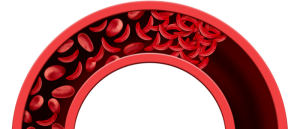World’s first regulatory authorization of a CRISPR-based therapy

Regulators in the United Kingdom have approved Vertex Pharmaceuticals (MA, USA) and CRISPR Therapeutics’ (Zug, Switzerland) CRISPR-based therapy.
The United Kingdon Medicines and Healthcare products Regulatory Agency (MHRA) has granted conditional marketing authorization for a CRISPR/Cas9 gene-edited therapy, CASGEVY™, for the treatment of sickle cell disease and transfusion-dependent beta thalassemia. This is the first regulatory authorization of a CRISPR-based gene-editing therapy in the world.
CASGEVY has been authorized for the treatment of eligible patients 12 years of age and older with sickle cell disease with recurrent vaso-occlusive crises or transfusion-dependent beta thalassemia, for whom there is an absence of an HLA-matched related hematopoietic stem cell donor. In the UK there are an estimated 2000 patients eligible to receive this treatment.
Reshma Kewalramani, CEO and President of Vertex stated: “Today is a historic day in science and medicine: this authorization of CASGEVY in Great Britain is the first regulatory authorization of a CRISPR-based therapy in the world.”
Vertex is already working closely with national health authorities to ensure eligible patients receive access as quickly as possible.
How does it work?
CASGEVY, also referred to as exagamglogene autotemcel (exa-cel), is an autologous, ex vivo gene-edited therapy. The therapy works by editing a patient’s own hematopoietic stem cells to produce fetal hemoglobin. To achieve this the patient’s hematopoietic stem cells are collected from their peripheral blood and edited ex vivo using CRISPR/Cas9. The edited cells are subsequently reinfused into the patient via an autologous hemopoietic stem cell transplant.
You might also like:
 Base editing demonstrates favorable results over CRISPR-Cas9 for treating hemoglobinopathies
Base editing demonstrates favorable results over CRISPR-Cas9 for treating hemoglobinopathies
Recent advancements in gene editing technologies may lead to a cure for hemoglobinopathies, including sickle cell disease and β-thalassemia.
Stem cell gene therapy expands the toolbox to tackle sickle cell disease
Scientists have identified another potential gene therapy for sickle cell disease, which has had success at the early stages of a clinical trial.


